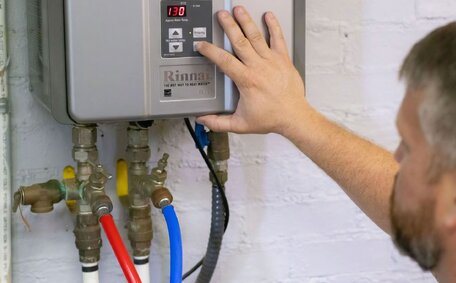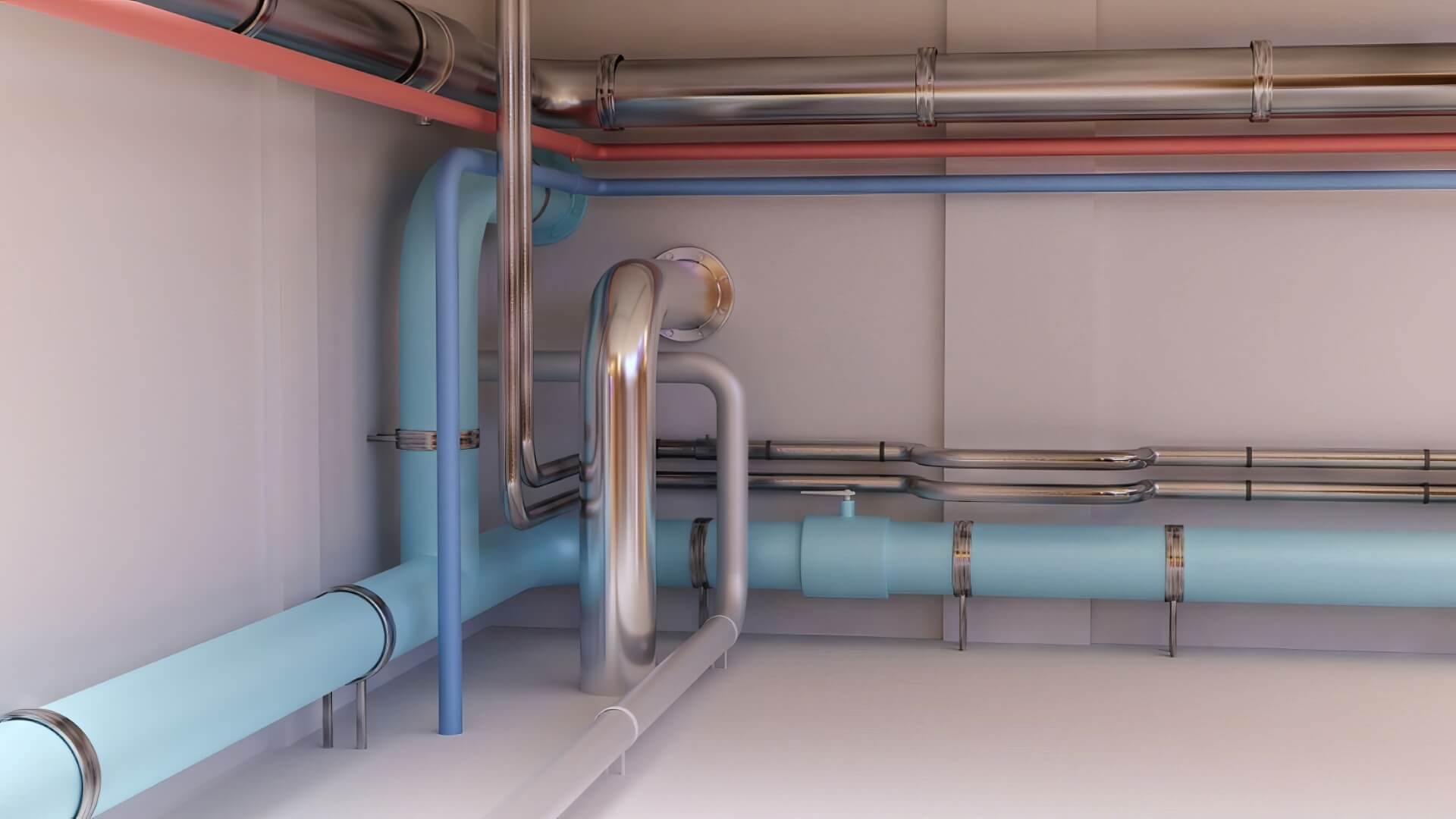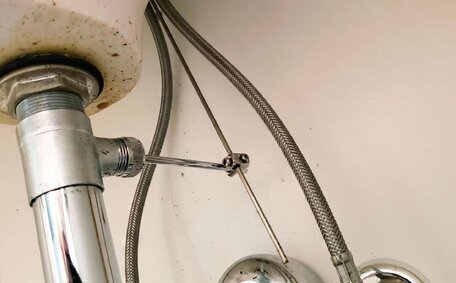Understanding blockages: signs of toilet troubles
A clogged toilet may lead to serious problems like burst pipes, demanding urgent attention. Signs of trouble include a slowly reducing water level and unusual gurgling sounds from the bowl.
Even if not immediate, a blocked toilet poses risks to sanitation and could cause property damage through potential overflows, leaving you without an essential home facility.
Blocked drains are indicated by symptoms such as:
- Water pools higher than normal
- Toilet takes longer to drain
- Gurgling or bubbling sounds
- Foul sewage odours
- Water overflowing onto floor
If you notice any of these, it likely indicates something lodged in the blocked drain or pipes. Prompt blockage identification can simplify plumbing repair and prevent significant backup.
Assessing the severity: is this an emergency?
Determining if a blocked toilet constitutes a plumbing emergency depends on factors like potential overflows, health hazards, and loss of plumbing functionality.
A persistently clogged toilet hampers daily life, with risks of unsanitary conditions and property damage from overflows. If the only bathroom fixture is inoperative, it’s crucial to contact an emergency plumber.
Signs it may require immediate professional attention where we work around the clock to solve include:
- Toilet is completely clogged with no drainage
- Sewage overflows are spilling across floors
- Unbearable sewage odours permeate living spaces
- Only toilet in the house is blocked
In these situations, knowing that we provide 24/7 services, promptly reach out to our emergency plumbing team at Glenwood Plumbing. Our professional plumbing team can skilfully manage toilet repairs, unclog drains, halt overflows, and restore full functionality, ready to serve you around the clock.
For less severe clogs, stay calm and try home remedies first, but if the situation doesn’t improve, promptly call a plumber. Should issues persist, it’s wise to obtain professional help right away to prevent situations that may harm your home.
Taking immediate action with DIY methods
For toilet plumbing issues without complete overflow, attempt DIY fixes before resorting to professional aid. Equip your home with maintenance essentials like plungers, gloves, and natural cleaners for clear drains.
To tackle minor clogs, first try pouring hot water into the toilet bowl, omitting plunger use. Hot water can loosen blockages, possibly easing the obstruction clearing process. Consider the use of a baking soda vinegar solution to boost the unclogging process.
For more stubborn clogs, pour 1 cup baking soda and 1 cup vinegar directly into the toilet bowl. Put on your gloves and employ a wire coat hanger to agitate the bubbling concoction, aiding in disintegrating waste.
Wait around 30 minutes before flushing with hot water and repeat the process if necessary.
Caution should be exercised to stop water flow by turning off your main water valve if necessary, to prevent overfilling the toilet and guard against overflows and potential damage to your property. When home solutions don’t rectify the issue swiftly, it’s prudent to consult a plumber, your ally in preventing plumbing damage and reducing health risks.
Using a plunger
A plunger is an effective traditional method for clearing toilet clogs. A flange plunger is preferable for a more robust seal in the toilet drain, although a standard one may sometimes work.
To address a blocked toilet using a plunger:
- Fill the bowl with hot water first to help soften the clog
- Force the plunger straight down to push out air and water to form a seal
- Quickly and forcefully plunge up and down 10-15 times, continuing until you feel the obstruction give way
- Flush the toilet to test drainage after plunging - repeat as needed
- Add a small squirt of dish soap if the plunger isn’t forming a tight enough seal
- Never plunge too vigorously to avoid cracking the toilet or tiles
Plungers, together with hot water, provide a simple, cost-effective solution for main drain blockages. But if repeated attempts do not succeed after 24 hours, call a professional.
Trying drain cleaners
Exercise caution when using drain cleaners, as their corrosive content can harm your toilet drains if misapplied.
Safer, natural alternatives possibly at your disposal include:
- Baking soda - Pour 1⁄2 cup down the drain followed by 1⁄2 cup vinegar. The chemical reaction helps to break up waste, allowing it to clear more easily.
- Salt and baking soda - Mix 1⁄4 cup each and scrub with a drain snake to dislodge gunk.
When using any drain cleaner, take safety precautions like gloves, goggles and ventilation. Never mix chemical products. Engage a professional plumbing service if home remedies fail to overcome the problem after 24 hours.
Calling in the professionals
For emergency aid with severe clogs or ongoing blockages, contact plumbing experts promptly to limit damage.
At Glenwood Plumbing, Our team boasts a wide range of specialised tools and the hands-on experience needed to unravel intricate issues caused by stubborn clogs. We extend our 24/7 services to include sydneyhot water system emergencies and other plumbing solutions for rapid drain maintenance, deftly addressing overflows, health risks, or impaired plumbing performance.
We employ innovative techniques such as hydro-jetting and mechanical augers to fix clogged drains thoroughly. And if necessary, offer advanced services such as pipe relining for damaged sewer lines.
In the various areas we service, we have accumulated over 25 years of experience in Sydney, ensuring that all your toilet plumbing requirements are met diligently by our certified plumbers with years of experience.
Contact Glenwood Plumbing at 1300 349 338 or [email protected] for the fastest emergency response times. Engage our experts to get your blocked toilet sorted, providing free payment options to suit your convenience.
Evaluating health and property risks
A blocked toilet that overflows can create major health hazards and property damage if not addressed quickly. Sewage overflow allows toxic germs to spread, causing contamination and infection risks, especially for young children and elderly household members.
Overflowing dirty water damages flooring, carpets, and furnishings, and the average toilet backup, releasing 350 gallons of wastewater, can cost thousands in repairs. Mould and lasting odours can persist, potentially affecting future home hygiene assessments, even after addressing the main water source and carrying out professional cleaning.
Minimise risks to your sewer line by being vigilant and considering your diy options like slow drainage. Try DIY methods first, but call Glenwood Plumbing on 1300 349 338 if problems continue more than 24 hours. Our experienced technicians are ready to assist, functioning hours day and night to clear blocked toilets prior to overflows resulting in expensive damage.
With advanced hydro-jetting equipment and decades of experience, we can quickly handle complicated clogs others cannot fix. Entrust Glenwood Plumbing with your dilemma to deliver plumbing solutions that rectify your blocked toilet emergency and defend health and home alike.
Implementing preventive measures
Adopting several key precautionary steps can help prevent the occurrence of toilet blockages in your home.
Using too much toilet paper is one of the most common causes of clogged toilets. Adhere to the manufacturer’s recommended amount of toilet paper to prevent blockages, if possible, using less than suggested. Refrain from flushing materials like paper towels and napkins, which can accumulate and cause blockages.
Avoid flushing certain items
Ensure only human waste and toilet paper are flushed to prevent introducing items that can initiate clogs. Flushing other items like wet wipes, qtips, dental floss, sanitary products, cigarette butts, paper towels, or toys can cause your drains to block as they resist decomposition.
Perform drain maintenance
Introduce 1 cup baking soda followed by 1 cup vinegar into your bathroom and kitchen sinks monthly to dissolve grease and shield your main sewer line. Use a drain snake occasionally to clean out hair and debris around plugholes to prevent transfer into main lines.
Conduct professional inspections
Have Glenwood Plumbing scope your main sewer pipes every 1-2 years using CCTV to identify issues like tree roots or cracks causing blockages. Detecting issues early prevents major blockages. We also offer professional hydro jetting services to thoroughly clean all drains and keep them flowing smoothly.
Stay vigilant for signs of drainage problems and don’t hesitate to call our emergency plumbers if concerns arise. We’re on hand round-the-clock to address any toilet issues before they escalate, just a phone call away from providing relief.
Proper toilet paper usage
Using too much toilet paper is one of the most common causes of clogged toilets. Stick to what the toilet paper manufacturer’s suggest, which can do wonders for preventing blockages – generally 1-2 sheets per wipe. Adding more just creates a thicker wad that doesn’t break down easily.
Educating everyone in your household about proper ways to use toilet facilities can prevent unnecessary blockages. Just because it feels luxurious doesn’t mean more is better. Using excessive amounts simply leads to accumulation in pipes.
It’s pivotal to limit your toilet to flushing only toilet paper and evade troublesome items; should a clog arise, don’t hesitate to get touch with our professionals. These items don’t disintegrate like toilet paper and compress into troublesome obstructions.
By instilling proper toilet paper usage habits in your household, most clogs can be avoided altogether. Please don’t hesitate to give us a call with your concerns about any toilet or plumbing issues.
Avoiding common clogging items
Avoid flushing unsuitable objects
It’s crucial to avoid flushing improper items which can get lodged in your pipes, restrict flow and cause a blocked drain. Common items that clog drains when flushed include:
- Paper towels, tissues or napkins
- Baby wipes, disinfecting wipes, moist towelettes
- Cotton swabs (Q-tips)
- Dental floss
- Sanitary items like tampons or pads
- Condoms
- Cigarette butts
- Kitty litter
- Hair
- Toys
These materials accumulate in pipes rather than breaking down, eventually blocking water flow. Wipes market themselves as flushable but remain intact, catching debris. Even items labelling themselves as flushable shouldn’t go down toilets.
Make sure children grasp the importance of not putting foreign objects into toilet to prevent clogs. And have guests use waste bins for sanitary items. Vigilance prevents buildup of common cloggers.
Regular drain maintenance
Regular drain maintenance is essential for preventing blockages and ensuring smooth operation of your plumbing system. Simple monthly tasks like pouring baking soda and vinegar down sinks prevents grease buildup. Using a toilet snake occasionally removes hair and debris before it chokes the main lines.
We recommend the following schedule:
- Monthly - Pour 1 cup baking soda followed by 1 cup vinegar down all sinks and tub drains. Let foam scrub the pipes.
- Every 3 months - Snake bathroom sink and tub drains to extract accumulated hair and soap scum.
- Every 6 months - Have a professional hydro jetting service to thoroughly clean interior pipe walls.
- Annually - Get a CCTV drain inspection to identify intruding roots or cracks needing repair.
Being proactive saves money by avoiding the costs of emergency blockage cleanings. If you notice decreased water flow, gurgling noises, or foul odours coming from drains, take action before it escalates into a costly issue.
For professional assistance with your plumbing issues, ensure you contact Glenwood Plumbing that can support you us today. Boasting years of experience, to be precise, over 25, serving Sydney households, Our refined techniques and advanced equipment ensure your water flows without issue.
Contact us anytime at [email protected] or call 1300 349 338.






